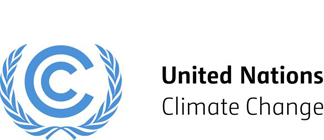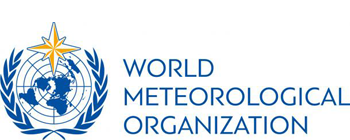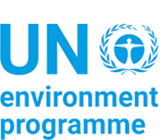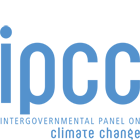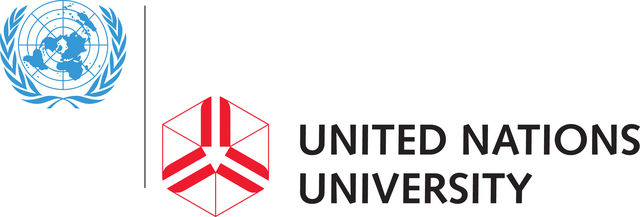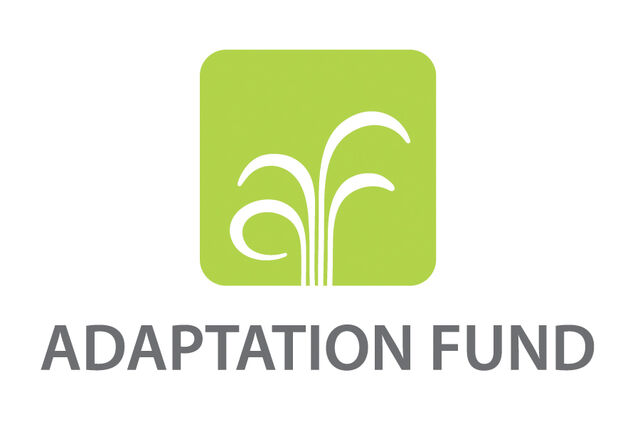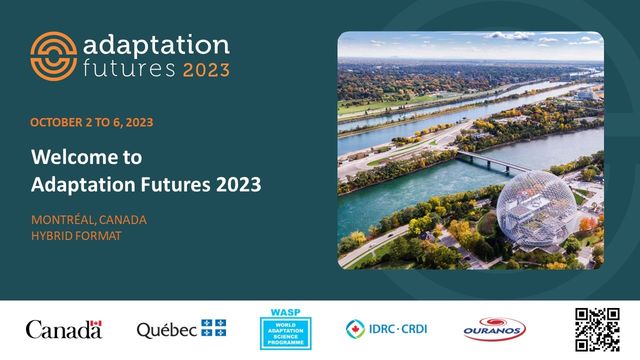The seventh Adaptation Futures international conference series on global adaptation is being organized by Ouranos, in partnership with the Government of Canada and WASP. Mark your calendar because the conference will take place on October 2-6, 2023 in Montreal, Canada.
More information about the conference, please visit the conference website here.
If you would like to stay informed about this conference, you can subscribe to the mailing list here.
For inquries, please write to
The Adaptation Futures 2023 conference aims to learn from Indigenous, local knowledge and voices in climate change adaptation research, policies, practices and actions around the world, accelerate the adoption of transformative adaptation for long-term resilience, bring marginalized voices, especially from the Global South, to the forefront in pursue of climate justice, equity, diversity and inclusion and accelerate momentum towards the Global Goal on Adaptation and the Global Stocktake and build on action to implement effective adaptation
Conference themes include
1. Learning from Indigenous and local peoples knowledges and expertise in adaptation
Indigenous People have been stewards of lands, waters and oceans for generations, anticipating and responding to climate variability and change. How do we integrate Indigenous knowledge and other knowledge holders' experiences for long-term resilience?
2. Dealing with multiple risks: Compound, cascading, cross-border climate change risks
People deal with many challenges at the same time, and climate change is only one of the stressors. How to account for the complexity and the interactions among multiple drivers of climate risk and vulnerabilities when identifying and implementing actions?
3. Making adaptation choices: managing trade-offs and seeking effective adaptation
Integrated perspectives are crucial to promoting adaptation choices that value diversity and reduce maladaptation. How do we enable integrated assessment for systemic and transformational adaptation and sustaining long-term resilience?
4. When we can no longer adapt
Adaptation (and mitigation) efforts will not be sufficient to address the complexity of all climate risks and vulnerabilities. So, what should we do when adaptive capacity is no longer enough to deal with climate challenges and to achieve the UN Sustainable Development Goals (SDGs)?
5. Who wins, who loses, who decides: Equity & justice in adaptation
The impacts of climate change are disproportionately experienced by marginalized and vulnerable groups. Efforts to support adaptation must therefore grapple with profound questions of ethics, equity and justice.
6. The power of nature for climate action
Human and natural systems are deeply interconnected. More effort is needed to fully unpack the climate-nature-society nexus, and to understand the enabling potential of nature-centered approaches to support adaptation.
7. Teaching and learning adaptation in a changing climate
Are our education systems up to the task of teaching and supporting effective learning about adaptation now that we have passed 1.1C global average warming and climate change is already a reality for many?
8. Inclusive adaptation governance and finance: how do we get there?
Suitable governance mechanisms, effective and inclusive decision-making processes, an enabling institutional context and finance are critical for implementing, accelerating and sustaining climate responses and Climate Resilient Development.

